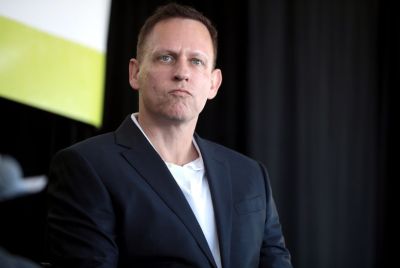Syria Civil War: Assad Runs for Cover as Fighting Rages [VIDEO]
Syrian strongman not seen in public since rebels took fight to heart of Damascus
As the Syrian capital Damascus is besieged by rebels and the inner circle of President Bashar al-Assad lies decimated, questions have arisen over the whereabouts of the 46-year old Assad, his wife and three children.
Although there are no reports of Assad or his family members coming to any harm, his silence is considered intriguing. The Syrian strongman has not been seen in public since the current phase of heavy fighting broke out on 15 July.
Areas near the presidential palace have also been bombed by the rebels.
In Wednesday's bombings, two top senior interior ministry officials were killed along with Assad's brother-in-law Assef Shawkat, and Defence Minister Daoud Rajha,
Fahad Jassim al-Freij, the former chief of staff, immediately took over as defence minister and vowed to get rid of the "armed terrorist gangs".
The rebels have made clear that their attacks are ultimately aimed at Assad. "God willing, this is the beginning of the end of the regime. Hopefully Bashar will be next," Riad al-Assad, a commander of the rebel forces, told the Press Association over telephone.
The White House said it believes the end of the Assad regime is near, as the president is perceived to be losing his grip over the country.
"I think the incident today makes clear that Assad is losing control. All of our partners internationally need to come together to support a transition," White House spokesperson Jay Carney was quoted by the BBC.
Other observers, including the Russian foreign minister Sergei Lavrov, reportedly view the current phase of the uprising as an end game.
The US and other western nations are reportedly looking for an opportunity for military intervention in Syria.
Fighting continued overnight and several attacks were reported across Damascus in the early hours of 19 July.
Although Damascus has been heavily fortified by Syrian forces, deploying helicopter gunships, machine guns and tanks, the rebel groups are now thought to be launching grenade and bomb attacks.
The UN Security Council has postponed its move to impose sanctions on Syria by a day.
"As we continue to pursue the political option the realities on the ground may have overtaken us, therefore I think the clock is ticking and we [may] have ... reached the point where the political option is too late." King Abdullah of Jordan told CNN in an interview.
"I think we should continue to give politics its due, but if we haven't already passed that window I think we are getting very close to it," Abdullah added in that interview.
© Copyright IBTimes 2025. All rights reserved.






















